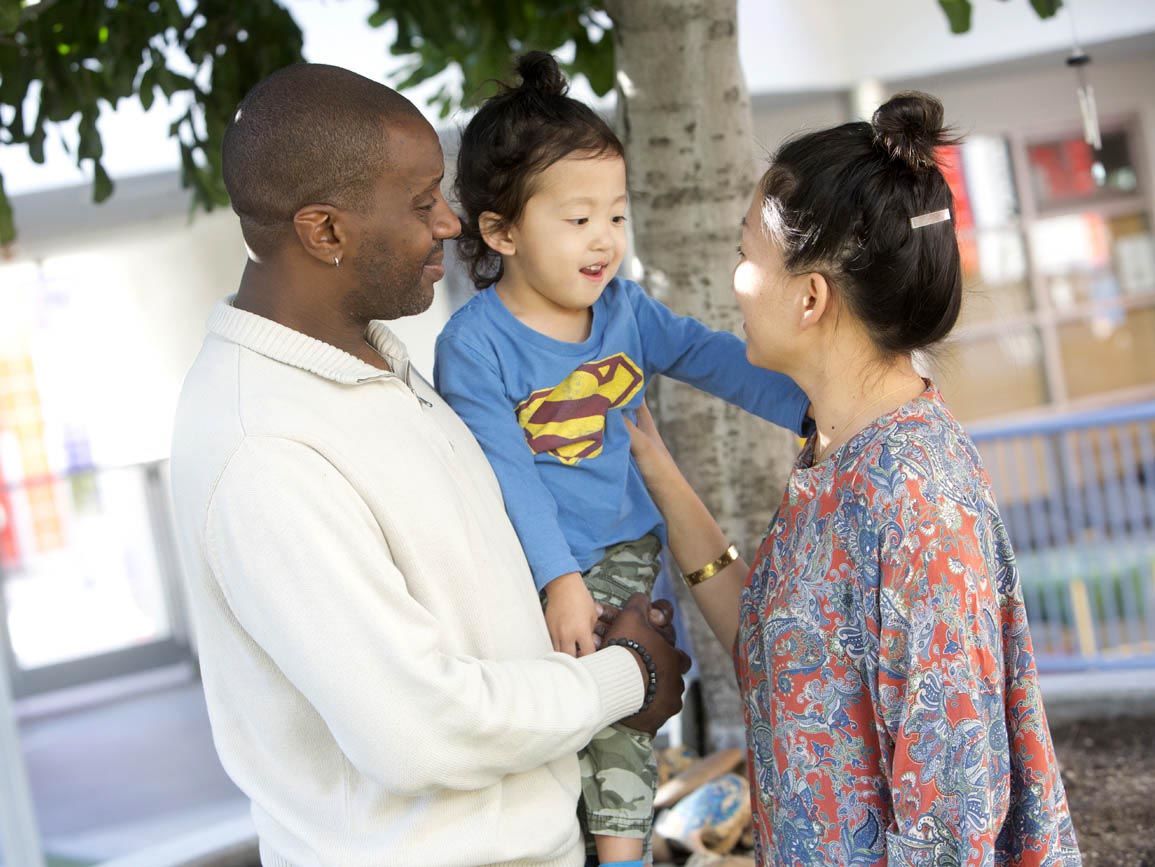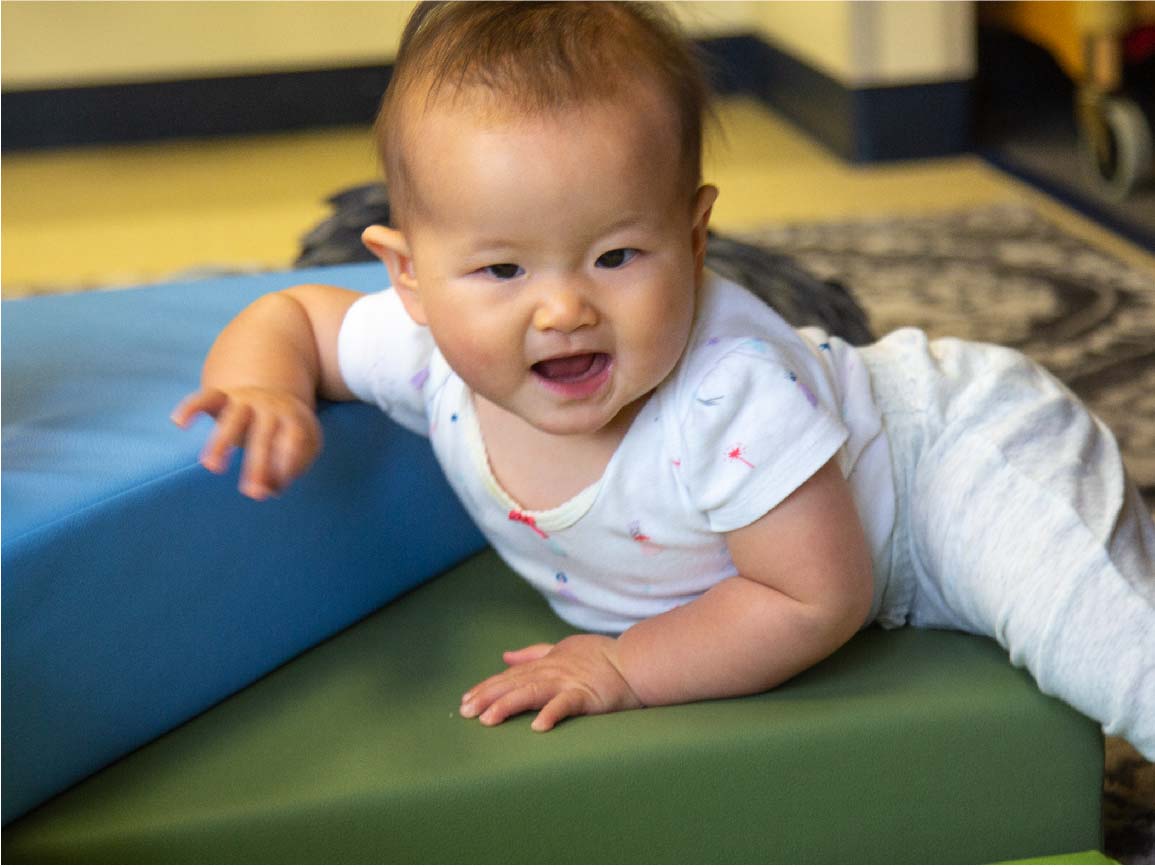The adolescent years are not only a time for physical growth—they are a time for parent and family growth. Parents now need to see their child and themselves in a new light. Some basic advice:
Develop a more mature relationship with your child. During adolescence, children begin to realize that parents and significant authority figures don’t know everything or have all the solutions. Begin changing your relationship with your children to reflect the bond you want to have when your child is an adult. Yes, you are still the parent now (and not a friend) and adolescents need boundaries, but strive for a relationship that embodies mutual respect, validation, and support of feelings without necessarily offering solutions, and enjoying each other’s company when the teen is willing. Initiate relaxed, casual conversations during shared activities such as cycling, hiking, shopping, playing catch, driving, cooking, and especially at mealtime.
Be the adult and stop the emotional roller coaster. Try not to respond to your child’s anger or frustration with more anger and frustration. It is developmentally natural for adolescents to challenge our opinions in a logical way and to express their anger through talking. Expect your teen to present a case passionately, even unreasonably. Acknowledge the reason your child is angry. Angry emotions are normal for teens and for us, but there are acceptable and unacceptable ways of dealing with them. Using inappropriate words, hurting people, or breaking things is not acceptable. Using a loud voice, saying mean things to others, and continually pushing the limits are normal, although unacceptable. Role-modeling the correct way to disagree is essential on our part. Try not to shout. Walk away if you must. Tell your child how you feel. “I’m so angry right now that I can’t discuss this anymore.”
Understand normal adolescent rebellion. Adolescent rebellion may manifest itself in many ways depending upon the temperament of the child. We will be faced with varying levels of challenges. For some of us, it’s just trying to get our kids to turn off the loud music and computer. For others, it will be dealing with more serious issues such as smoking, drinking, drugs, sex, and staying out beyond curfew. Regardless of the situation, the ideas below may help to develop a better relationship between you and your child. When we have a mutually trusting and respectful bond with our children, we are more likely to have greater influence over them.
Avoid too much criticism. Negative parent-adolescent relationships develop because we criticize teenagers too much, often for things that do not matter that much in the big picture. Most teens’ “objectionable behavior” stems from their desire to conform to the current tastes of their peer group. As our teenagers would say, it’s best to just “back off.”
Decide what matters. If permanent pink hair dye is totally out of the question, maybe you can help your child find a wash-out hair color. Adolescents want to express themselves in ways that seem unacceptable to us, but just thumb through your high school yearbook for a glimpse of rebellious clothes and hair styles. If a teen's behavior is harmful, illegal, or infringes on the rights of others, we must set boundaries that have consequences. But we must decide what really matters in our families while still allowing our teens to gain independence.
Let children learn consequences. Everyone learns best from trial and error. As children experiment, they will learn to take responsibility for their decisions and actions. We may use school performance to determine bedtime, computer use, and social activities. In order to make good grades, our children will have to be responsible for attendance, punctuality, conduct at school, assignments, homework, and tests. If children spend all their allowance before the end of the week, they will have to do without certain things.
Set curfews and other house rules. It is common courtesy and a matter of safety for all family members to let each other know where they will be at all times and if their plans change or they will be late. Clarify your house rules and consequences for breaking them. As parents, we have the right and the responsibility to make and enforce these rules.
Give your child space. Adolescents need time alone and with their friends. Yes, we should certainly know where our children are , but it’s OK to give space to a child who is in a bad mood. When adolescents are in a bad mood, they often don’t want to talk about it with you first. Sometimes they want to be alone, and at other times, they want to talk with their friends. Try a subtle approach, “I’m here if you want to talk.” Keep in mind that we parents have a hard time listening and not judging. When teens are upset, they are looking for solutions and not criticism.
Negotiate rules and work out compromises. Have a family meeting or ask your child to write down his wants or concerns. Be willing to listen to his ideas and accept those that do not interfere with family values. Perhaps your child wants to go to the movies alone with a few friends, but you feel uncomfortable leaving him there on his own. Compromise by going with your child and seeing another movie or sitting in another section of the theater.
Apologize and offer forgiveness. This is the time when children challenge our authority and discover that adults don’t always have all the right answers or make the right choices. Apologize to your child when you step over the line by yelling or punishing unnecessarily. Children need to see that confrontation doesn’t mean that there can’t be reconciliation and that even though family members fight, they still love each other.
When is rebellion a sign your adolescent may be in trouble? How can we tell the difference between normal rebellion and the signals that our child is troubled? According to Kathleen McCoy, PhD, author of "Teen Rebellion: What's Normal What's Not," we should ask ourselves these two questions:
1. How frequent and intense is the rebellion? Normal rebellion is sporadic. There are moments of sweetness, calm, and cooperation between outbursts. If on the other hand, rebellion is constant and intense, this can be a sign of underlying emotional problems.
2. Is this behavior change drastic for my child? Normal rebellious behavior develops over time, beginning with a teen wanting to be with friends more and disagreeing with parents more frequently. Problem rebellion is sudden and drastically out of character. For example, a normally rebellious "A" student may get a few "Bs" and cut a class or two, but if he suddenly starts failing or refuses to go to school, this can be a sign that your teen is experiencing an emotional crisis.
Professional Help
Time and patience help normal rebellion, but a troubled adolescent needs additional help from counseling professionals and parents. Call your doctor if you think your child:
- is depressed, suicidal, drinking or using drugs, or planning to run away.
- is taking undue risks, driving carelessly, and doing dangerous stunts.
- has no close friends.
- has school performance that declines markedly.
- is skipping school frequently.
- has a temper that is destructive or violent.
- displays rebellion that is excessive.
- is seriously disrupting your family life.
Growing Up
Some families have stormy teen years, others only a few squalls. If we keep our heads up, pay attention, listen as much as we talk, try and stay somewhat relaxed, flexible, and resolute, almost all of us make it through.





